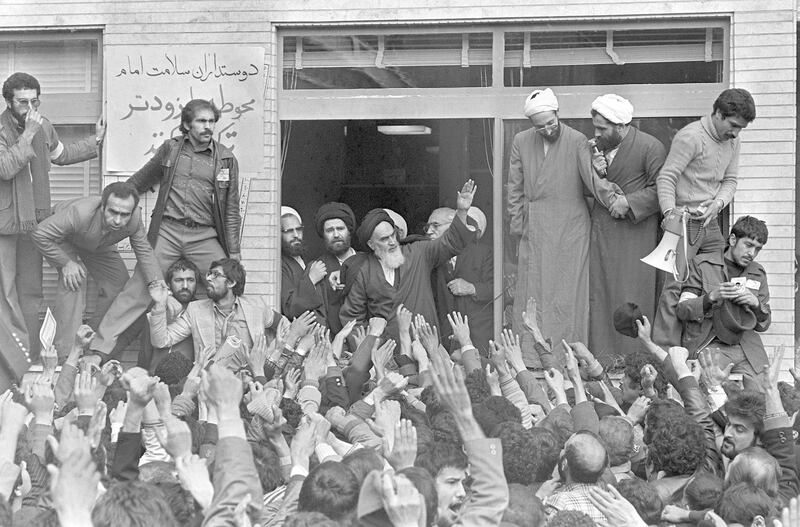Today, as state-sponsored celebrations are held across Iran to mark the 40th anniversary of the revolution, there will be precious little for ordinary Iranians to celebrate. They were jubilant on February 11, 1979, when – driven to desperation by the brutal excesses of the Shah – they thought their country had been granted the blessing of a fresh start. In fact, they had merely traded one corrupt, repressive regime for another, ending the half-century of rule by the hated Pahlavi dynasty in favour of the equally despotic pseudo theocracy led by Ayatollah Ruhollah Khomeini. Ever since, Iranians have been citizens of a pariah state at war with the world, thanks to a destructive and anachronistic philosophy of perpetual revolution. Ordinary Iranians have paid the price with endless hardships, imposed by a rolling regime of sanctions introduced by the international community in response to a catalogue of outrages and provocations perpetuated by the regime in Tehran.
The first sanctions, imposed shortly after Khomeini took power, followed the seizure of the US embassy in Tehran in November 1979, during which 52 Americans were taken hostage and held captive for 444 days. Since then, the list of Iran's crimes against the international community has grown ever longer, from the two truck bombings that killed more than 360 people in Beirut in 1983 to its destabilising behaviour across the Middle East. Its political and military meddling, either directly or through proxies, in the affairs of states including Iraq, Lebanon, Syria and Yemen, has endangered the fragile ecosystem of stability in the region. By arming and supporting militias such as Hezbollah and the Houthis, and by insinuating itself into the politics of Iraq and Lebanon, Tehran continues to pursue its ambition of building a land bridge to carry its malign influence all the way to the shores of the Mediterranean.
“This is not an ordinary government,” Khomeini declared before taking power in 1979. “Our war is one of ideology and does not recognise borders or geography.” It is to the detriment of Iranians – and the region – that they have since discovered what that chilling threat really means: a regime hellbent on consolidating its own power, at any cost. That has meant money laundering, drug smuggling and nefarious activities to line leaders’ pockets while their own people have suffered under the hardships imposed by rising costs and sanctions.
Since the revolution, Iran, a land where the hopes and dreams of individuals have been sacrificed for the totalitarian and ultimately self-defeating ambitions of a clique, has existed in self-imposed exile. As Iranians publicly "celebrate" the 40th anniversary of that revolution, in private many will share the view of the international community, expressed by US Secretary of State Mike Pompeo last November: it is time for Tehran to abandon its untenable Machiavellian path and start putting its own people first.





